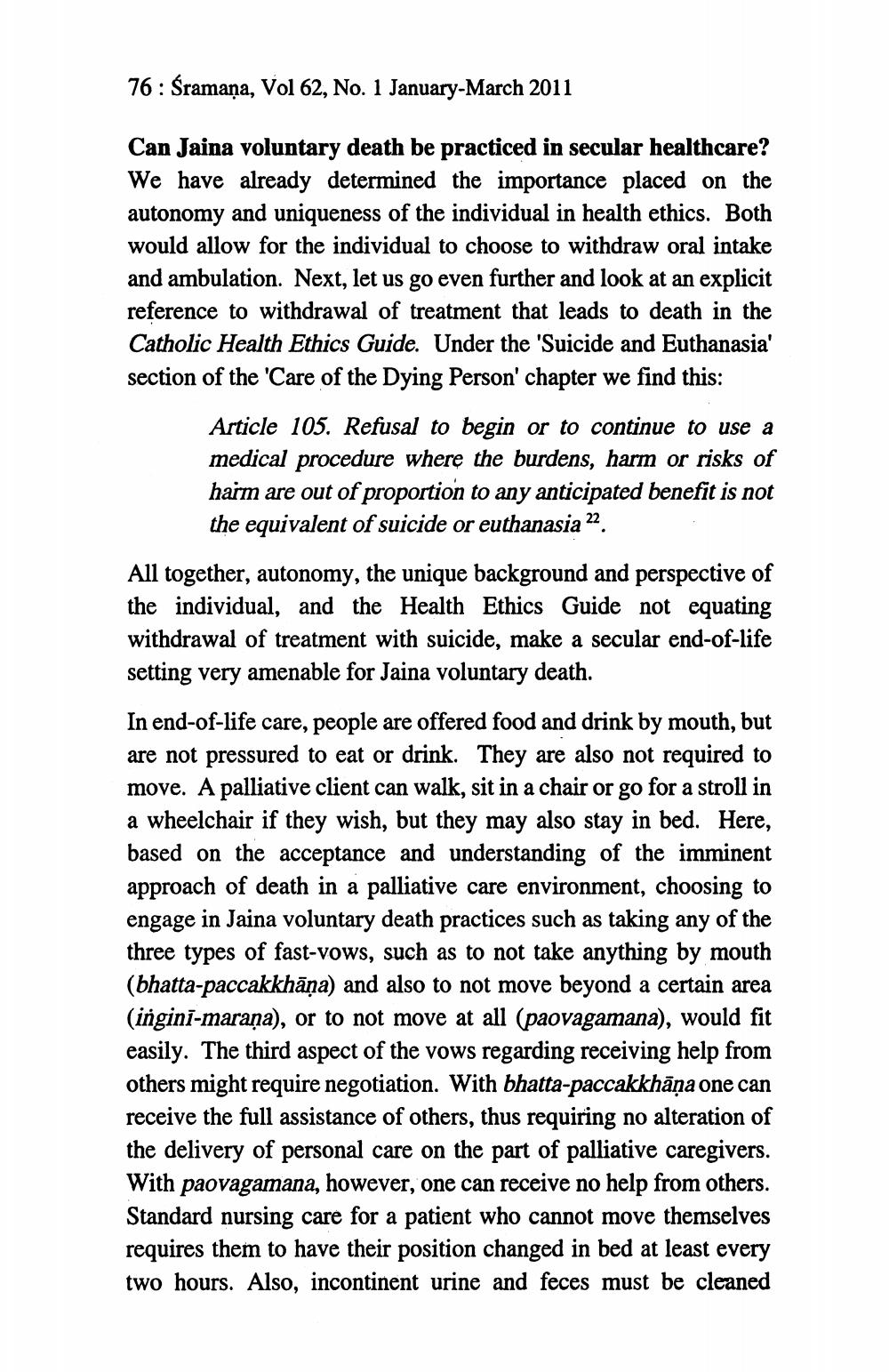________________
76: Śramaņa, Vol 62, No. 1 January-March 2011
Can Jaina voluntary death be practiced in secular healthcare? We have already determined the importance placed on the autonomy and uniqueness of the individual in health ethics. Both would allow for the individual to choose to withdraw oral intake and ambulation. Next, let us go even further and look at an explicit reference to withdrawal of treatment that leads to death in the Catholic Health Ethics Guide. Under the 'Suicide and Euthanasia' section of the 'Care of the Dying Person' chapter we find this:
Article 105. Refusal to begin or to continue to use a medical procedure where the burdens, harm or risks of harm are out of proportion to any anticipated benefit is not the equivalent of suicide or euthanasia 22.
All together, autonomy, the unique background and perspective of the individual, and the Health Ethics Guide not equating withdrawal of treatment with suicide, make a secular end-of-life setting very amenable for Jaina voluntary death.
In end-of-life care, people are offered food and drink by mouth, but are not pressured to eat or drink. They are also not required to move. A palliative client can walk, sit in a chair or go for a stroll in a wheelchair if they wish, but they may also stay in bed. Here, based on the acceptance and understanding of the imminent approach of death in a palliative care environment, choosing to engage in Jaina voluntary death practices such as taking any of the three types of fast-vows, such as to not take anything by mouth (bhatta-paccakkhāņa) and also to not move beyond a certain area (ingini-marana), or to not move at all (paovagamana), would fit easily. The third aspect of the vows regarding receiving help from others might require negotiation. With bhatta-paccakkhāņa one can receive the full assistance of others, thus requiring no alteration of the delivery of personal care on the part of palliative caregivers. With paovagamana, however, one can receive no help from others. Standard nursing care for a patient who cannot move themselves requires them to have their position changed in bed at least every two hours. Also, incontinent urine and feces must be cleaned




